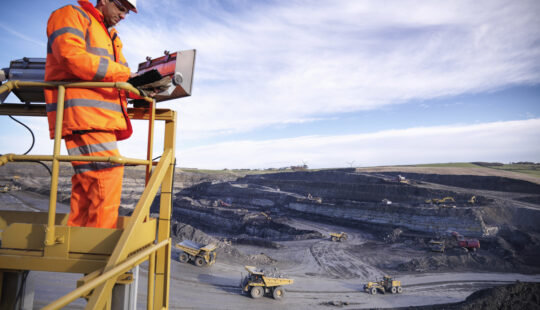The world continues to respond to the rate of new coronavirus infections and work towards defining what a COVID-normal world would look like; Australian and New Zealand enterprises face new challenges and uncertainty as with the rest of the world.
As part of SAP’s commitment to helping business become more resilient and agile in today’s challenging environment, the recent Adaptive Strategies in a Changed World ACCELERATED Forum provided free industry-specific webinars that explored how governments, business and the community can work together to drive a faster economic recovery.
The Forum was a follow-up to the inaugural Adaptive Strategies event in May, where industry advisors and executives shared their perspectives on the strategies that Australian and New Zealand organisations were taking in response to some of the challenges we have faced this year – from the bushfires to the global pandemic. Regardless of industry, common themes that emerged were; digital preparedness, the importance of collaboration, business continuity, keeping customers and employees safe, safeguarding supply chains, mitigating risks, and building resilience for future events. Members of our team in the Digital Transformation Office at SAP Australia & New Zealand participated in these sessions and here are some highlights.
Adaptive Strategies in a Changed World ACCELERATED
Small and medium enterprise (SME) will play a pivotal role in getting Australia back to work, which according to the 2019 Small Business Ombudsman Report accounts for 35% of our national GDP and 44% of Australia’s workforce. The SME sector, much like larger enterprises, has been hit by three primary challenges – cashflow management, employee engagement/availability, and supply chain disruption.
To further understand how innovation and increasing productivity can foster growth in this sector, Hannah Baudert, Federal Government Director at SAP spoke with the Australian Small Business and Family Enterprise Ombudsman (ASBFEO), Kate Carnell in the dedicated SME session.
For the mining and resources session, Anton Kroger, Director of Energy and Natural Resources at SAP hosted a discussion with Angela Williamson, Partner at Integral Supply Networks Advisory, Sanjiv Manchanda, CEO for Atlas Iron, and Robert McCarthy, GM at Dyflex Solutions.
A key takeaway from this session was the importance of engaging with remote workforces and contractors while managing supply chains during this time of uncertainty. With ever-changing legislation and continued fears around the safety and supply of resources – both human and material, mining operators should utilise technology that helps keep its various stakeholders connected and compliant.
As highlighted in the discussion, it’s not just about reducing costs and maintaining business continuity but ensuring the productivity and wellbeing of various staff members, processes, and equipment throughout the product lifecycle. Miners should use this opportunity to take stock prior to digital transformation, understand business capacities and systems to ensure they’re aligned with overarching strategic goals.
Evan Mantis, General Manager for Consumer and Service Industries at SAP introduced the Retail and Consumer Product session with Steven Moraitakis, Transformation Lead for Consumer Goods and Retail at SAP, and Jackie Pearson, Executive GM for Business Transformation at Sigma Healthcare.
Ms Pearson shared insights from Sigma Healthcare’s digitisation journey which they kick-started due to the legacy ‘technology debt’ created across the organisation. With four separate ERP systems and a host of different applications that were highly customised, disparate, and not providing the necessary insights, Sigma Healthcare needed to optimise its technology and processes to operate more intelligently.
Moving ahead with their digital transformation program not only mitigated risk but broke down structural silos and unified all parts of the organisation, allowing staff to work more efficiently while creating value in multiple business areas. Currently in the process of evolving its ERP ecosystem to integrate all data touchpoints into a single platform with SAP S/4HANA, Sigma Healthcare was able to withstand the COVID-19 disruption by relying on agile technology and its best in class distribution centres. Ms Pearson is fiercely powering through implementation remotely, emphasising the organisation’s ability to quickly adapt to new circumstances.
For the Utilities session, Jonathan Fogarty, Utilities Lead Architect for SAP hosted a panel discussion with Danica Lawrence, IS Lead Chief Architect for Powerco NZ, Rob Scott, Director and Principal of HR Strategy and Innovation at Deloitte, Aaron Green, Senior VP and Head of SAP SuccessFactors APAC, and Gavin Mooney, Utilities Lead Architect for SAP Australia.
With ongoing challenges and uncertainties, the panel discussed the importance of connecting and collaborating with staff while maintaining company culture. As businesses focus on productivity and safety, the key is facilitating remote work with operational and intelligent technologies – helping staff to work seamlessly and minimising manual, in-field work. For example, Internet of Things (IoT) and machine learning capabilities are facilitating predictive maintenance, optimising asset use and longevity while increasing the efficiency of maintenance crews. By assisting fieldworkers through augmented reality, and reducing the amount of fieldwork required using touchless substations and smart metering, utilities are improving their processes and keeping everyone safe during the pandemic.
In the financial services session, Peter Jose, General Manager for Financial Services at SAP introduced a discussion between Darryl Fox, Industry Account Director at SAP and David Earls, Executive GM of Enterprise Services and Technology at IAG. They discussed how IAG are utilising digital technology to empower staff, stay connected to their customers and maintain service continuity. Prior to the lockdown, IAG already had 30% of staff working predominantly from home which helped set a solid foundation in terms of technologies and practices for ensuring productivity.
Evan Mantis opened the Engineering session with Asha Bisla, GM of Business Applications at Broadspectrum, Shenaz Bilkis, Global Industry Director for Construction and Real Estate at SAP, and Mike Denning, Business Architect for Service & Engineering Industries at SAP.
Asha shared insights into how Broadspectrum are working closely with strategic partners to fast track critical processes. Leveraging technology allowed the business to facilitate remote working at scale, manage the scheduling and safety of projects and people, while using communications and analytics software to forecast and plan for ever-changing circumstances.
Uday Bonu, Regional Industry Lead for Public Sector at SAP spoke with Chris Atkins, VP of Digital Government Transformation at SAP to explore the impact of COVID-19 on public services and the strategies that can help governments work more efficiently to deal with the increasing demand for social services in the face of declining revenues. By implementing and accelerating digital initiatives, governments and private businesses can help set the industry norms and motivate change for the better in terms of processes and systems.
Taking insights from each of these industry sessions, it is clear that organisations of all sizes, in all industries, are squarely focussed on safeguarding their employees and customers, while maintaining business continuity. Technology and digitisation is playing a vital role in supporting and facilitating rapid change. In polling attendees, SAP found that businesses across industry sectors are reprioritising and/or accelerating digitalisation projects in response to the pandemic – using the global shift to focus more on future-proofing operations.
Access the on-demand recordings from the SAP 2020 Adaptive Strategies in a Changed World ACCELERATED Forum to gain further insights on specific industry challenges and how SAP solutions are helping organisation to become more adaptive and resilient in this rapidly changing environment.
This blog originally published on Linkedin.



